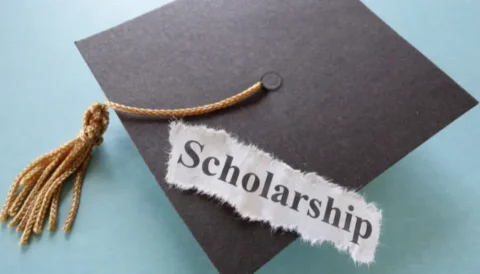Pursuing an MBA abroad is a life-changing experience, opening doors to global career opportunities and personal growth. The application process, however, is complicated and overwhelming. Thousands of applicants are competing for a few limited spots in the best business schools worldwide, so one mistake in the application process can affect admission by quite a bit. Here’s a rundown of the most common mistakes applicants make when applying for an MBA abroad and how to avoid them.
The Most Common MBA Abroad Application Mistakes You Need to Avoid
1. Not Doing Enough Research on Schools and Programs
The largest mistake that applicants make is not researching the schools and programs that they are applying for. Business schools around the world vary in specializations, teaching styles, and culture. Therefore, it is essential to select a program that matches one’s career goals, preferences for learning, and long-term goals.
How to Avoid This Mistake:
- Spend time understanding the curriculum, faculty, and alumni network of the schools you’re interested in.
- Attend virtual or in-person webinars and open houses hosted by the universities.
- Speak to current students or alumni to get an insider’s perspective on the program.
- Understand the geographical and cultural dynamics of the university’s location.
2. Failing to Meet Application Deadlines
Normally, business schools have more than one round of admissions and all rounds have deadlines. Failure to meet the deadline automatically disqualifies your application. Furthermore, last-minute submissions tend to produce applications replete with errors, which will likely hurt your chances.
How to Avoid This Mistake:
- Make a timeline with all the important deadlines for each school and application round.
- Allow yourself enough time to gather documents like transcripts, recommendation letters, and test scores.
- Start drafting your essays early so you can revise and improve them.
3. Not Tailoring Your Application Essays
A generic or one-size-fits-all essay is a lost opportunity to stand out in a competitive sea of applicants. Admission committees read hundreds or thousands of essays, and those lacking a personal touch get lost in the shuffle. It can cost you valuable points if you don’t illustrate why you are specifically interested in a program.
How to Avoid This Mistake:
- Customize your essays to reflect how your goals align with the specific MBA program.
- Be authentic and clearly articulate why you’re passionate about pursuing an MBA and how it will help you achieve your career aspirations.
- Share your unique experiences, leadership potential, and what you can contribute to the school’s community.
4. Underestimating the Importance of the GMAT/GRE
Many applicants believe that if they have a good academic record or professional experience, they can skip the GMAT or GRE preparation. However, top business schools are strict about the scores they accept. A low score will hurt your chances in such competitive programs.
How to Avoid This Mistake:
- Begin preparing for the GMAT or GRE well in advance. Consider enrolling in a prep course if necessary.
- Take practice tests to assess your strengths and weaknesses, and allocate time to improve your weaker areas.
- Aim to take the test multiple times if needed to achieve a score that is competitive for your target schools.
5. Neglecting to Secure Strong Recommendation Letters
The letter of recommendation plays a big role in the application. A generic or poorly written recommendation letter can damage your prospects even when other parts of your application are good. Choose recommenders who know you well enough to speak about your leadership, work ethic, and potential.
How to Avoid This Mistake:
- Select recommenders who are familiar with your professional abilities and accomplishments.
- Give your recommenders enough time to write a thoughtful and detailed letter.
- Provide them with context about the program and your career goals, so they can tailor the letter accordingly.
6. Overlooking Financial Planning
Studying abroad, especially an MBA, is not pocket-friendly. Any casual planning and the misunderstanding of costs involved, including tuition fees, may bring unnecessary stress later on. So, you must have a clear picture of how you are going to fund your education.
How to Avoid This Mistake:
- Research the total cost of the program and explore scholarship opportunities, student loans, and other financial aid options.
- Understand the cost of living in the city where the school is located and factor that into your budget.
- Create a financial plan that includes tuition, travel, accommodation, food, and emergency expenses.
7. Neglecting to Network and Build Relationships
Something else to remember: Networking starts long before you ever step foot on campus. Many applicants do not make a serious attempt to contact alumni, current students, or faculty members during the application process. This seriously curtails their understanding of the program but can also eliminate some connections that may strengthen your application.
How to Avoid This Mistake:
- Reach out to alumni and current students to learn about their experiences.
- Attend school events, webinars, and networking sessions where you can connect with people from the program.
- Demonstrate your networking skills and enthusiasm for building relationships in your application and interviews.
8. Not Preparing Properly for the Interview
Many of the top business schools interview applicants as part of their admission process. A poorly prepared interview can make you seem unprepared, unsure, or lacking in confidence, even if your application is otherwise strong.
How to Avoid This Mistake:
- Practice answering common MBA interview questions such as “Why this school?” and “Where do you see yourself in five years?”
- Be prepared to discuss your professional background, achievements, and goals.
- Stay calm, be yourself, and remember that the interview is an opportunity to demonstrate your fit with the program.
9. Ignoring Visa and Immigration Requirements
Getting an MBA abroad often requires a student visa, and if you do not understand the specific requirements, you may experience delays or be denied the opportunity to study. Visa policies vary from country to country, and you need to comply with each one.
How to Avoid This Mistake:
- Start the visa application process early and ensure you have all the necessary documents.
- Understand the work visa rules of the country where you plan to study, especially if you intend to stay and work after graduation.
- Keep track of any changes to immigration policies that might affect your application.
10. Not Leveraging Professional Experience
The best business schools put a high value on work experience, particularly on leadership and managerial experience. A full resume with lots of tasks and responsibilities will not suffice to distinguish you. Growth, impact, and potential for leadership are what the admission committees look for in their applicants.
How to Avoid This Mistake:
- Highlight your achievements and leadership experiences in your resume and essays.
- Emphasize how your professional experience will help you contribute to the MBA program.
- Demonstrate your career progression and how an MBA fits into your long-term goals.
Conclusion
Applying for an MBA abroad is a highly competitive and complex process. If you avoid all these common mistakes, it would be much easier for you to increase your chances of admission into your dream school. Start early preparations, do thorough research, and make sure you make an application tailored to highlight your strengths, experiences, and uniqueness. Networking with alumni and current students, writing a unique personal statement, and taking into account deadlines and recommendations will make one stand out as an equally prepared and committed candidate. With proper care and strategic planning, the candidate will be well set on his way to making it into one of the world’s top MBA programs.





